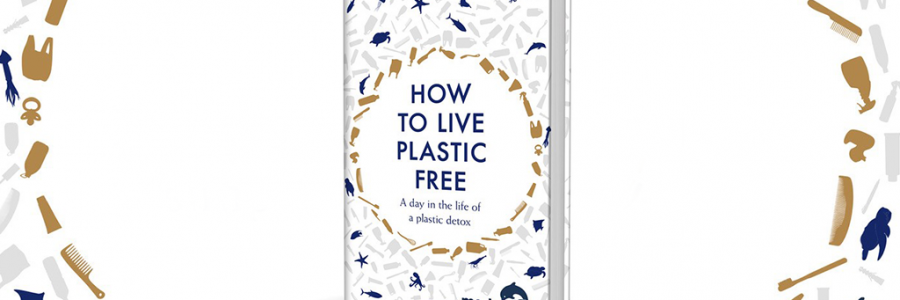How To Live Plastic Free

Today marks World Environment Day and if you’re feeling a little more conscious about how much plastic you’re using on a day to day basis we have the perfect antidote with How To Live Plastic Free. Whether you decide to go plastic free for an hour, a day or a year, this book will equip you with little steps we can each take to make a big difference…
‘BATHROOM
Hair care
Like shower gels, the nation’s favourite haircare products, in the main, come in plastic containers that end up in the bin once the product has run out. The answer to a plastic-free alternative for shiny locks also comes in the shape of a bar. Shampoo bars can last three times as long as a regular bottle. Head to the Lush website (lush.com) – they’ve got heaps of shampoo bars with lots of testimonials. But a quick internet search will throw up a whole load of alternatives. You’ll need to hunt around as some may dry your hair out.
Switching to a shampoo bar may be a more experimental journey . . . but it will be totally worth it in the end. You can even get wooden combs and brushes for the hair you’re now washing with a shampoo bar.
Keeping fresh
Making your own deodorant is a great alternative to a plastic-packaged one. Simply mix coconut oil and bicarbonate of soda with one drop of anti-bacterial essential oil and you’re away!
Toothbrushes and pastes
Teeth-cleaning implements have apparently been around since 3000 BC, when our ancestors used a ‘chew stick’, a thin twig with a frayed end which they rubbed against their teeth and gums. It was the Chinese in the 1400s who invented the bristle toothbrush, attaching hogs’ bristles to handles made from bone or bamboo. Hogs’ hair gave way to horsehair, as we Europeans liked a softer brush, then pig bristles and badger hair were used. Nylon bristles replaced animal hair in the 1930s and now the handles are made from polypropylene and polyethylene – better known as plastic. All very convenient to fend off cavities but very inconvenient for the environment.
According to the dental profession, we should replace our toothbrush every three months, thereby adding to the growing plastic mountain. But there’s good news on the toothbrush front. The bamboo brush is back! Although it takes some getting used to, it’s fully biodegradable and once you’ve got past the less-than-familiar feeling in your mouth you’re good to go! There are a number of other ‘green’ brushes on the market, including ones made from yoghurt pots if you prefer a more familiar plastic-y feel.
Most toothpastes are packaged in plastic, whether they’re in a tube or a pump-action canister. Swap your traditional toothpaste for tooth powder, which you can buy on the high street or online – just make sure you get one in a tin that you can then reuse, perhaps for your own home-made version!
5 THINGS YOU CAN DO TODAY TO DETOX YOUR BATHROOM FROM PLASTIC
Replace bottles of shower gels, shampoos, and canisters of deodorant, with solid bars instead
Replace your plastic toothbrush with a bamboo alternative and have a go at making your own tooth powder and mouthwash.
Stop using make-up wipes that contain plastic and NEVER flush wipes down the loo.
Get on the internet and look for plastic-free make-up –you’ll be surprised at the choice and the packaging looks good on the shelf, too.
Buy recycled loo roll. Ecoleaf is made from 100% recycled paper and the packaging is said to be 100% compostable.’






